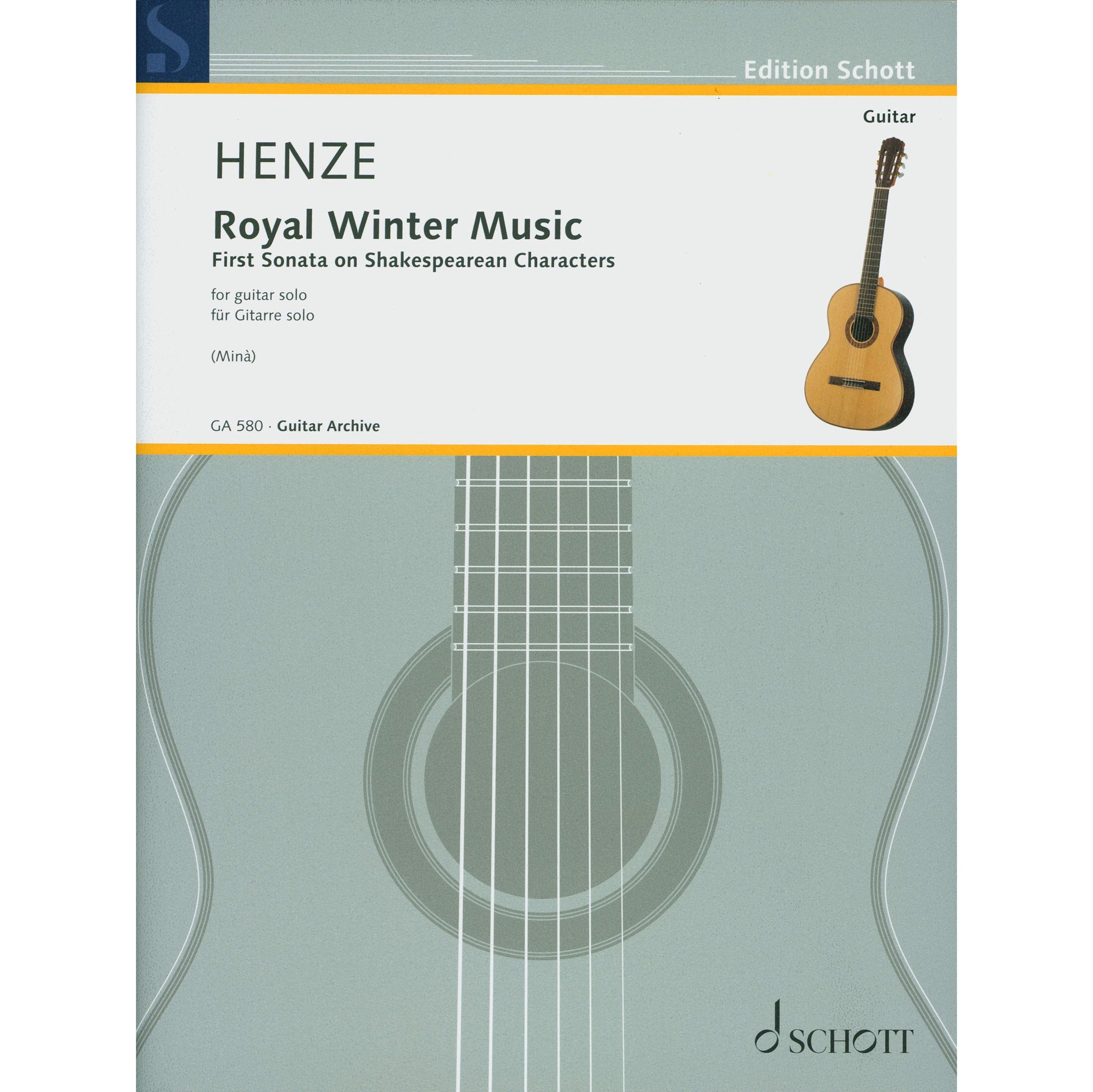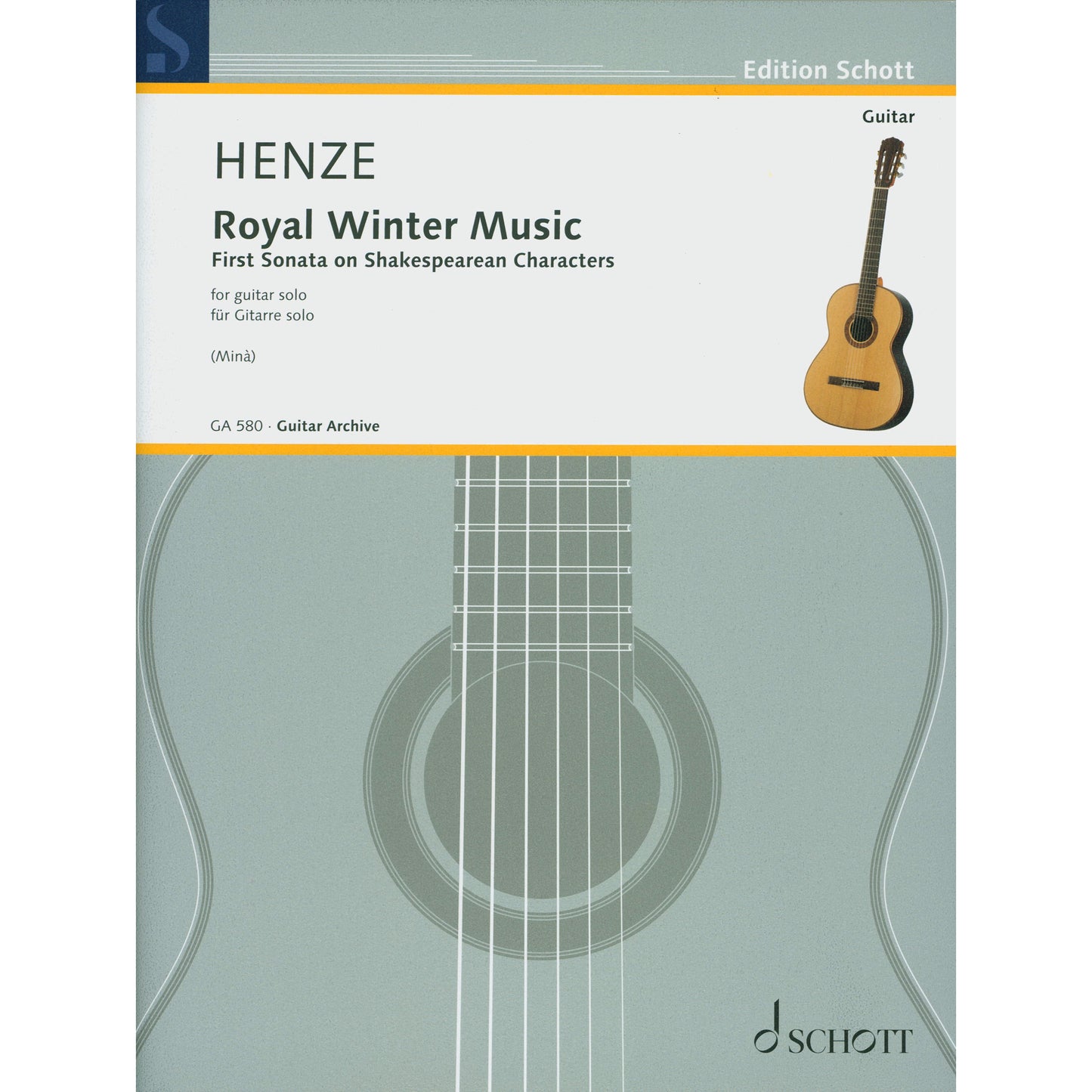-
 My idea of developing music from Richard of Gloucester's monologue 'Now is the winter of our discontent', and of generating more music from that material, was conceived during the 1960s. Ten years later it took a more concrete form, when Julian Bream suggested to me that I should write a substanial new guitar work for him. More time went by, and only having finished 'We Come to the River' could I begin to realise our plan. Then began a collaboration with the instrumentalist that went through various phases, from which I gained a more profound knowledge of the technicalities and of the sound-world of the guitar. I would even go so far as to say thatthis collaboration gave me a new concept of how to write for an instrument with a rich tradition. The guitar is a 'knowing' or 'knowledgeable' instrument, with many limitations but also many unexplored spaces and depths within these limits. It possesses a richness of sound capable of embracing everything one might find in a gigantic contemporary orchestra; but one has to start from silence in order to notice this: one has to pause, and completely exclude noise.
My idea of developing music from Richard of Gloucester's monologue 'Now is the winter of our discontent', and of generating more music from that material, was conceived during the 1960s. Ten years later it took a more concrete form, when Julian Bream suggested to me that I should write a substanial new guitar work for him. More time went by, and only having finished 'We Come to the River' could I begin to realise our plan. Then began a collaboration with the instrumentalist that went through various phases, from which I gained a more profound knowledge of the technicalities and of the sound-world of the guitar. I would even go so far as to say thatthis collaboration gave me a new concept of how to write for an instrument with a rich tradition. The guitar is a 'knowing' or 'knowledgeable' instrument, with many limitations but also many unexplored spaces and depths within these limits. It possesses a richness of sound capable of embracing everything one might find in a gigantic contemporary orchestra; but one has to start from silence in order to notice this: one has to pause, and completely exclude noise.
The dramatis personae of this piece enter through the sound of the guitar as if it were curtain. Through masks, voices and gestures,they speak to us of great passion, of tenderness, sadness and comedy: strange events in people's lives. Into this, the whispering voices of spirits are mingled. The epilogue is spoken by Oberon, pacified and reconciled, as though Nature had been subjected to Man.
– Hans Werner Henze
The exact appearance of this item may vary.
More Details
1
/
of
1
More Details
More Details
This item does not have a spec list.
Royal Winter Music First Sonata on Shakespearean Characters
Royal Winter Music First Sonata on Shakespearean Characters
New
SKU: 49-047165
Regular price
$26.39 USD
Regular price
$32.99 USD
Sale price
$26.39 USD
Unit price
/
per
Shipping calculated at checkout.
Experience the Elderly Difference
My idea of developing music from Richard of Gloucester's monologue 'Now is the winter of our discontent', and of generating more music from that material, was conceived during the 1960s. Ten years later it took a more concrete form, when Julian Bream suggested to me that I should write a substanial new guitar work for him. More time went by, and only having finished 'We Come to the River' could I begin to realise our plan. Then began a collaboration with the instrumentalist that went through various phases, from which I gained a more profound knowledge of the technicalities and of the sound-world of the guitar. I would even go so far as to say thatthis collaboration gave me a new concept of how to write for an instrument with a rich tradition. The guitar is a 'knowing' or 'knowledgeable' instrument, with many limitations but also many unexplored spaces and depths within these limits. It possesses a richness of sound capable of embracing everything one might find in a gigantic contemporary orchestra; but one has to start from silence in order to notice this: one has to pause, and completely exclude noise.
The dramatis personae of this piece enter through the sound of the guitar as if it were curtain. Through masks, voices and gestures,they speak to us of great passion, of tenderness, sadness and comedy: strange events in people's lives. Into this, the whispering voices of spirits are mingled. The epilogue is spoken by Oberon, pacified and reconciled, as though Nature had been subjected to Man.
– Hans Werner Henze
More DetailsThe dramatis personae of this piece enter through the sound of the guitar as if it were curtain. Through masks, voices and gestures,they speak to us of great passion, of tenderness, sadness and comedy: strange events in people's lives. Into this, the whispering voices of spirits are mingled. The epilogue is spoken by Oberon, pacified and reconciled, as though Nature had been subjected to Man.
– Hans Werner Henze
Couldn't load pickup availability
More Details
More Details
This item does not have a spec list.



